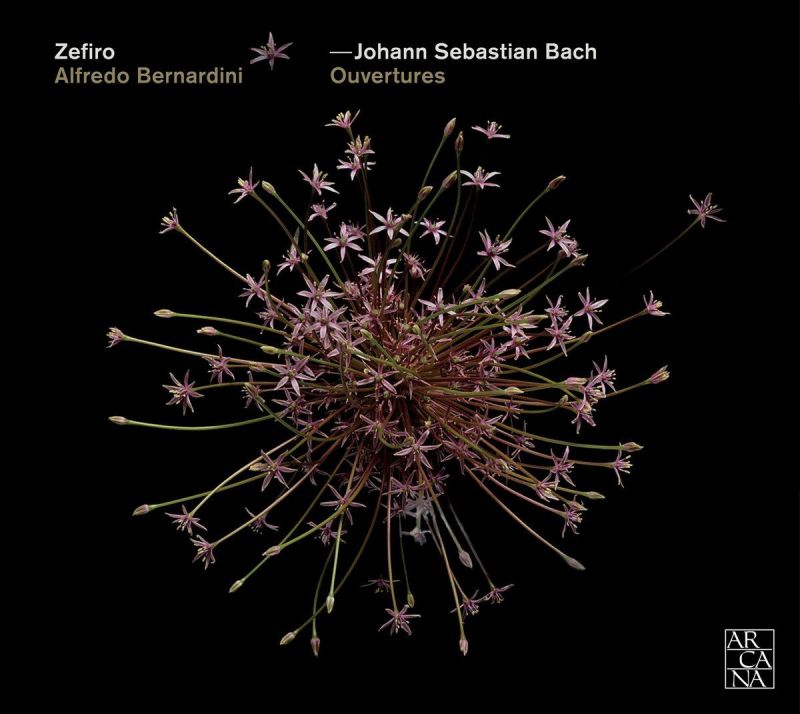JS BACH Orchestral Suites Nos 1, 3 & 4
View record and artist detailsRecord and Artist Details
Composer or Director: Johann Sebastian Bach
Genre:
Orchestral
Label: Arcana
Magazine Review Date: 04/2017
Media Format: CD or Download
Media Runtime: 77
Mastering:
DDD
Catalogue Number: A400

Tracks:
| Composition | Artist Credit |
|---|---|
| (4) Orchestral Suites, Movement: No. 1 in C, BWV1066 (2 oboes, bassoon & strings) |
Johann Sebastian Bach, Composer
Alfredo Bernardini, Conductor Johann Sebastian Bach, Composer Zefiro |
| (4) Orchestral Suites, Movement: No. 3 in D, BWV1068 (2 oboes, 3 trumpets, strings |
Johann Sebastian Bach, Composer
Alfredo Bernardini, Conductor Johann Sebastian Bach, Composer Zefiro |
| (4) Orchestral Suites, Movement: No. 4 in D, BWV1069 (3 oboes, 3 trumpets, strings |
Johann Sebastian Bach, Composer
Alfredo Bernardini, Conductor Johann Sebastian Bach, Composer Zefiro |
| Cantata No. 119, 'Preise Jerusalem, den Herrn', Movement: Overture |
Johann Sebastian Bach, Composer
Alfredo Bernardini, Conductor Johann Sebastian Bach, Composer Zefiro |
| Cantata No. 194, 'Höchsterwünschtes Freudenfes, Movement: Overture |
Johann Sebastian Bach, Composer
Alfredo Bernardini, Conductor Johann Sebastian Bach, Composer Zefiro |
Author: David Vickers
Bernardini ‘reconstructs’ two ouverture-style movements based on the hypothesis that several elaborate opening choruses of Leipzig sacred cantatas could have been arranged from unknown lost orchestral pieces, and he takes inspiration from Bach’s own adaptation of the ouverture from BWV1069 for the beginning of Cantata No 110, Unser Mund sei voll Lachens. Accordingly, the start of No 194, Höchsterwünschtes Freudenfest, is rearranged into an orchestral piece for four-part reeds in dialogue with strings, and the first chorus of No 119, Preise, Jerusalem, den Herrn, is converted into a splendid ouverture featuring four trumpets, timpani, two recorders, three oboes, bassoon and strings; Zefiro’s radiant performances produce a convincing outcome to the experiment. It’s a nice touch that this album is dedicated affectionately to the memory of pioneering Baroque oboist and musicologist Bruce Haynes.
Discover the world's largest classical music catalogue with Presto Music.

Gramophone Digital Club
- Digital Edition
- Digital Archive
- Reviews Database
- Full website access
From £8.75 / month
Subscribe
Gramophone Full Club
- Print Edition
- Digital Edition
- Digital Archive
- Reviews Database
- Full website access
From £11.00 / month
Subscribe
If you are a library, university or other organisation that would be interested in an institutional subscription to Gramophone please click here for further information.




